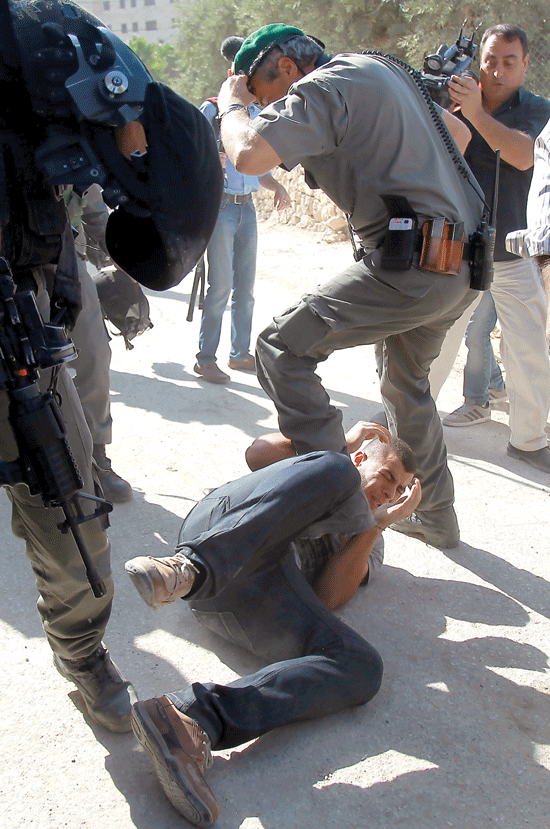

UNITED NATIONS: The United Nations said yesterday that Israel’s decisions to impose up to 20 years prison for people throwing stones and to force-feed prisoners on hunger strike threatened to worsen an “already-precarious human rights situation”.
UN political affairs chief Jeffrey Feltman also told the UN Security Council that he was concerned about Israel’s decision to extend the use of prolonged administrative detention and called for all detainees to be promptly charged or released.
Israel’s security cabinet on Aug. 2 extended to its own citizens so-called “administrative detention”, a practice commonly applied to Palestinian militant suspects and condemned internationally.
The change laid bare authorities’ frustration at failing to curb Jewish ultra-nationalist attacks and followed the lethal torching of a Palestinian home.
Feltman said that this attack and many others over the years, including against Israeli settlers, happened in the context of “a chronic lack of adequate law enforcement”. “Such violence is possible because of the environment created as a result of Israel’s decades-long policy of illegal settlement activities,” he said. Last month, Israel’s parliament imposed tougher penalties of up to 20 years prison for people throwing stones at vehicles and roads and authorised force-feeding of prisoners on hunger strike.
“Careful consideration should be placed on addressing the underlying human rights concerns which lead prisoners to such extreme protests, including prolonged administrative detention,” Feltman said.
He said that the law on stone-throwing was “likely to affect children disproportionately.”
With US-sponsored peace talks stalled since April 2014, violence has simmered in the region. A war in Gaza a year ago killed more than 2,100 Palestinians, mostly civilians, and 67 Israeli soldiers and six civilians were killed.
“The risk of escalation in Israel and Palestine is palpable,” Feltman said. “The past month has witnessed unconscionable crimes of hatred by extremist elements, reprehensible retaliatory violence, provocations at Jerusalem’s holy sites, and a worrying increase in rockets launched from Gaza towards Israel,” he said. Palestinians seek a state in Gaza, the West Bank and East Jerusalem, lands Israel captured in 1967. Settlements that Israel has built on territory captured in 1967 are considered illegal under international law.
Meanwhile, Palestinian Christians scuffled with Israeli border police near Bethlehem after dozens of them, including priests, gathered to protest renewed work on Israel’s West Bank separation barrier in a sensitive Christian area.
Witnesses said the protesters, who were joined by a few foreign activists, gathered in the Christian town of Beit Jala to protest building a stretch of the barrier, which started on Monday after years of legal battles. The three Roman Catholic priests tried to pray among olive trees that bulldozers and mechanical diggers were seeking to uproot but were stopped by police.
One demonstrator was arrested as he tried to plant an olive sapling in front of the excavators. Police wrestled with protestors who chanted,” Israel is a terrorist state. It doesn’t scare us.”
Reuters/AFP




